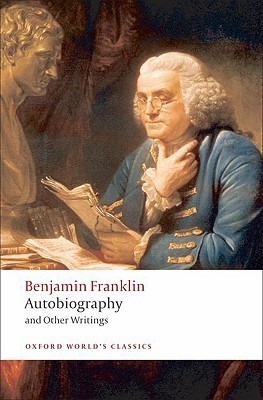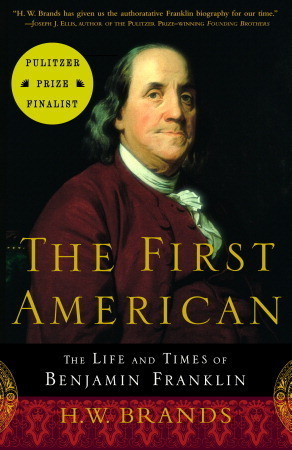
Benjamin Franklin: An American Life
Book Description
A renegade inventor, a clever diplomat, and a founding father—Benjamin Franklin lived a life that shaped a nation. Walter Isaacson crafts an exhilarating journey through Franklin's extraordinary achievements and personal struggles, revealing the man behind the myth. Experience the brilliance of his inventions, the thrill of his political maneuvers, and the tangled web of his relationships, each moment resonating with the promise of revolution. This is not just a biography; it's a vivid exploration of the ideas that ignited a spark for freedom. How did one man’s visions alter the course of history forever?
Quick Book Summary
Walter Isaacson’s "Benjamin Franklin: An American Life" offers a rich, multidimensional portrait of one of America’s most influential Founding Fathers. Drawing on Franklin's letters, writings, and inventions, Isaacson highlights Franklin’s roles as an inventor, statesman, diplomat, and philosopher. The biography traces Franklin’s rise from humble origins to renowned printer and then key architect in the creation of the United States. Isaacson delves into Franklin's personal contradictions, his pragmatic yet idealistic approach, and his crucial influence on American values like self-improvement, civic responsibility, and scientific inquiry. Far from a static icon, Franklin emerges as a witty, adaptable, and endlessly curious figure whose ideas and actions helped lay the foundation for American democracy and innovation.
Summary of Key Ideas
Table of Contents
Self-Made Man and Civic Leader
Benjamin Franklin’s ascent from a modest Boston upbringing to global prominence exemplifies the self-made individual. Driven by curiosity and ambition, Franklin became a successful printer, using his resources and intellect to fund community projects such as the first public library, fire department, and educational institutions in Philadelphia. His embrace of self-improvement and practical virtue shaped both his life and the developing American ethos.
The Spirit of Scientific Inquiry
Franklin’s inventive spirit and scientific pursuits were central to his identity. Whether experimenting with electricity or crafting innovations like the lightning rod and bifocals, his relentless inquiry reflected Enlightenment ideals. He both popularized and advanced scientific knowledge, embracing experimentation and observation. Franklin’s love of learning extended to his involvement with philosophical societies and his advocacy for education in the colonies.
Diplomacy and Nation-Building
On the political front, Franklin’s diplomatic savvy was critical to the American Revolution and the formation of the United States. Representing colonial interests in London and later securing French support in Paris, Franklin leveraged relationships and wit to further American independence. His vision for democracy and social mobility helped forge new political norms, while his negotiations and compromises shaped foundational documents like the Declaration of Independence and the Constitution.
Contradictions and Personal Complexity
Howard Isaacson does not shy away from Franklin’s personal contradictions. Though a proponent of liberty and self-improvement, Franklin was at times self-serving and ambivalent about issues like slavery. His strained relationships with family and estrangement from his loyalist son reveal a more human, and at times flawed, individual. These complexities only deepen Franklin’s legacy, demonstrating the tension between Enlightenment rationalism and pragmatic action.
Legacy of Enlightenment Ideals
Franklin’s legacy endures in the realms of civic engagement, scientific advancement, and American political culture. His commitment to practical solutions, social progress, and the pursuit of knowledge became part of the nation’s DNA. By painting Franklin as a dynamic, adaptable figure, Isaacson encourages readers to see history’s icons as nuanced individuals whose strengths and contradictions together helped shape a revolutionary era.
Download This Summary
Get a free PDF of this summary instantly — no email required.





